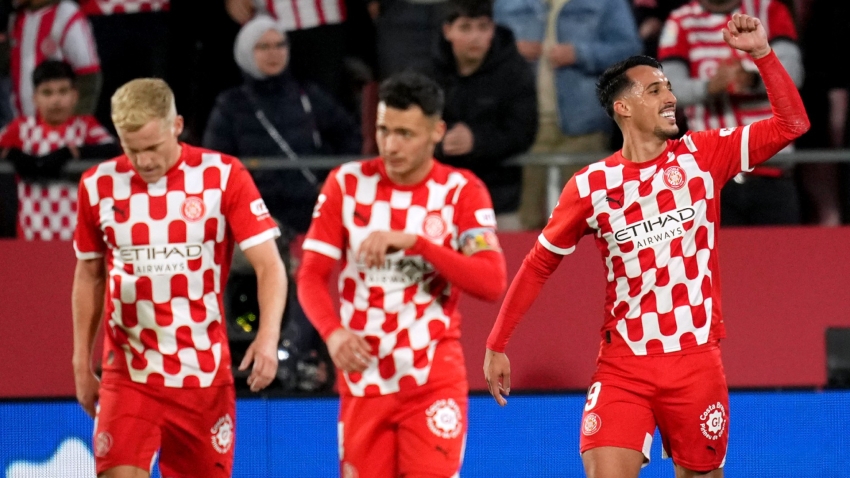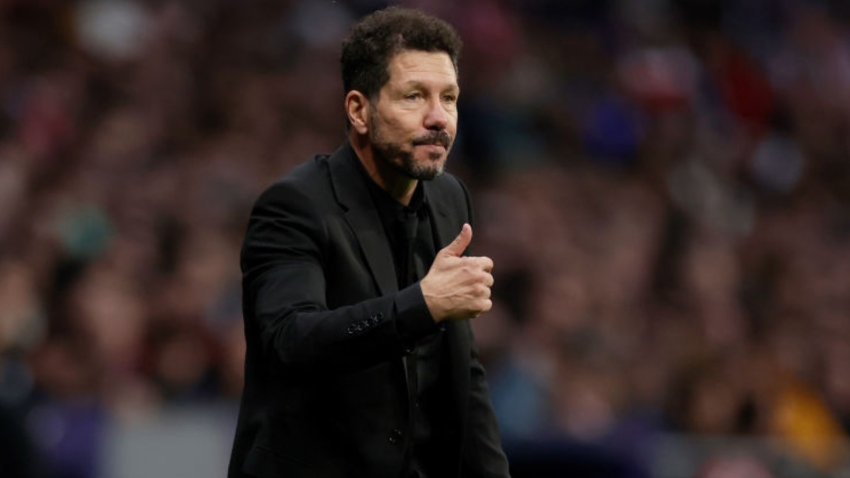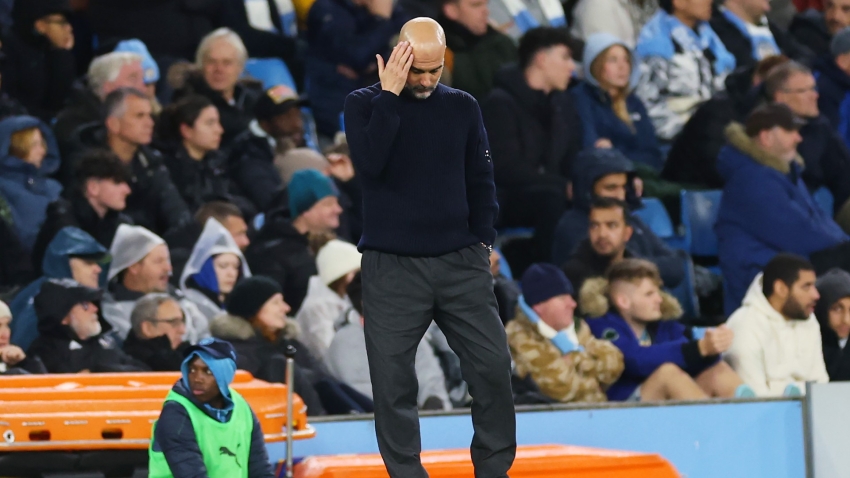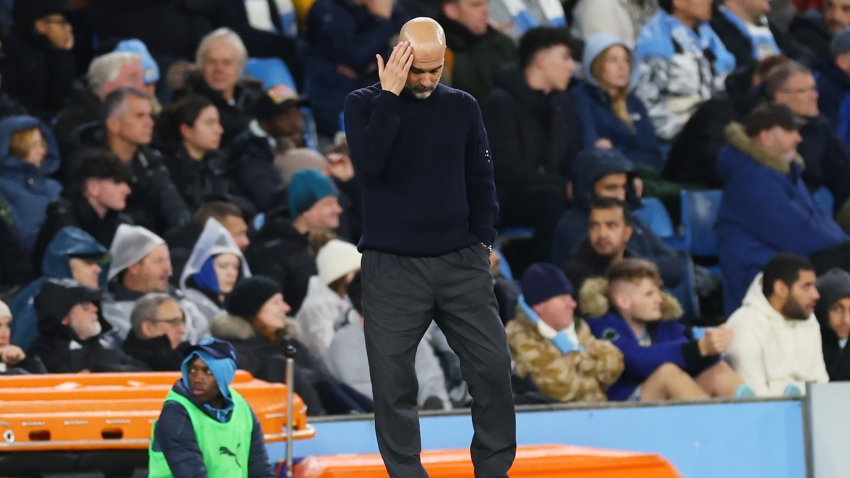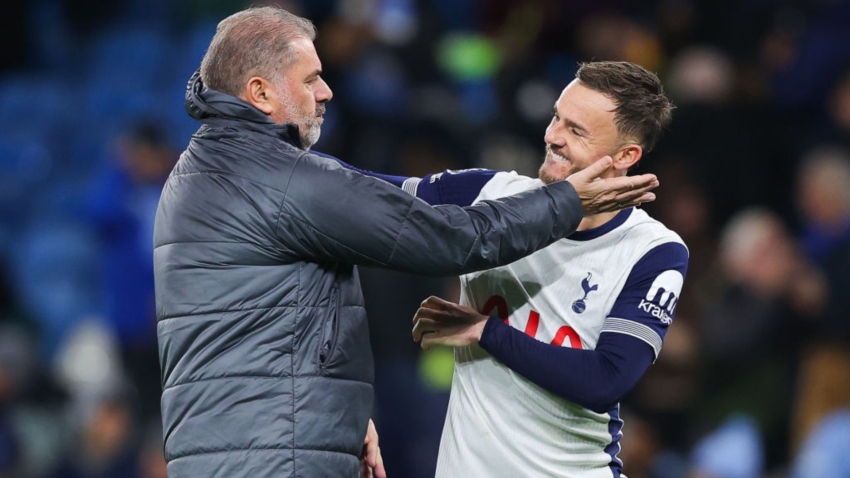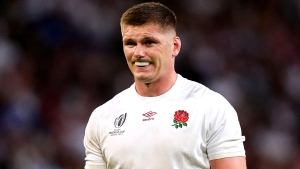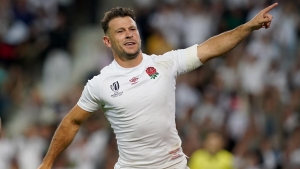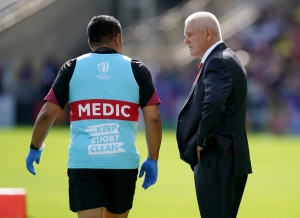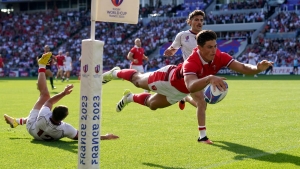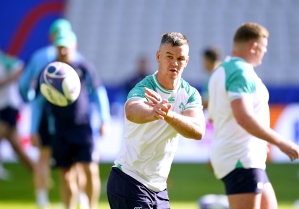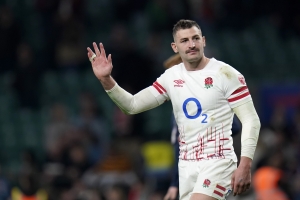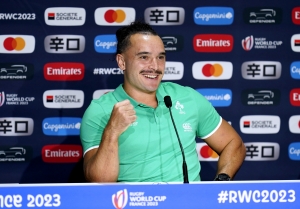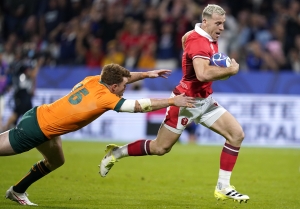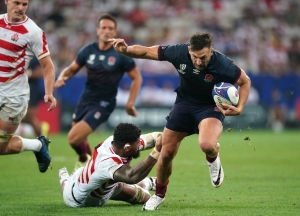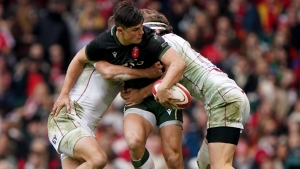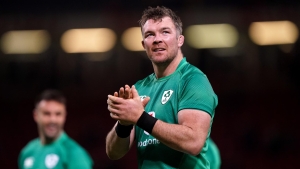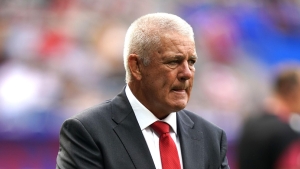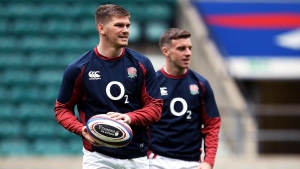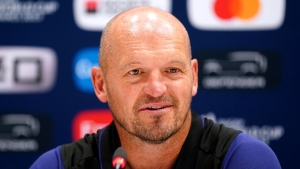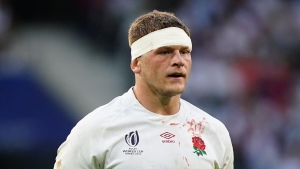Peter O’Mahony feels a degree of embarrassment at joining Ireland’s “hugely inspirational” list of centurions and hopes even greater moments are to come as he targets Rugby World Cup glory.
Munster captain O’Mahony will become only the 10th Irishman to reach 100 caps when he lines up for Saturday’s pivotal Pool B showdown with Scotland in Paris.
John Hayes, Brian O’Driscoll, Ronan O’Gara, Paul O’Connell and Rory Best were the first five players to achieve the feat, followed by current internationals Cian Healy, Johnny Sexton, Conor Murray and Keith Earls.
View this post on Instagram
A post shared by Irish Rugby (@irishrugby)
O’Mahony, who made his debut against Italy in 2012, grew up idolising some of those greats and never envisaged emulating their longevity at Test level.
“I’m still kind of surprised,” he said.
“It’s almost a little bit embarrassing with the names that are ahead of me to be honest, people I grew up following and supporting, hugely inspirational characters.
“To be the 10th, it’s going to take some time to settle in. It’s nothing I ever expected or dreamed of. We all talk about having dreams but that one was way off the radar.
“I’m just trying to prepare as if it’s another Test match.
“I’m hoping there are going to be bigger moments in my career than this one – and hopefully in the near future.”
Ireland departed their group-stage base city of Tours for good on Thursday morning and will spend the remainder of the tournament in Paris.
Head coach Andy Farrell has consistently made a big deal of landmark appearances and O’Mahony’s wife, children and parents were guests at the current team hotel on the northern outskirts of the French capital.
O’Mahony, 34, concedes he is no longer physically able to keep up with younger players in training and therefore devotes his efforts to being in peak condition come match day.
Ireland will qualify for the quarter-finals, a stage they have never before gone beyond, with a win or draw at Stade de France this weekend, while a marginal defeat may also be sufficient.
Lifting the Webb Ellis Cup at the same venue in just over three weeks’ time remains the ultimate goal, with O’Mahony wary of suffering early elimination at the hands of the Scots following a statement success over South Africa.
“It’s our be-all and end-all and I’m not going to say that lightly,” he said of winning the tournament.
“Every team that makes this competition is in this country to win it and we’re no different and certainly people talking about us not being able to get past certain hurdles, this is the biggest hurdle of our tournament so far and that’s the way we’re considering it.
“We’ve had some good performances but we’re considering Scotland as the team they are: an incredible threat to our campaign and our journey.”
Visits to Paris are bittersweet for O’Mahony.
His former Munster head coach Anthony ‘Axel’ Foley died in his sleep at a hotel in the city in October 2016 ahead of the team playing against Racing 92.
“Myself and Johnny (Sexton) had a conversation about it, I think it was on the way to the South African game actually, about sometimes it is weird to be in Paris and to think about Axel and what happened,” said O’Mahony.
“It certainly is an incredibly sad memory, particularly for that Munster team who were in Paris that week.
“I’m not going to go into it now but Johnny made a couple of lovely gestures to the family afterwards but Axel is always somebody who is certainly in my head on a very regular basis and when you come to Paris he certainly comes to mind.
“I’ve the fondest memories that we had together and the amount of inspiration he gave, not to just to me, but to lots of young kids in Munster and Ireland.”







